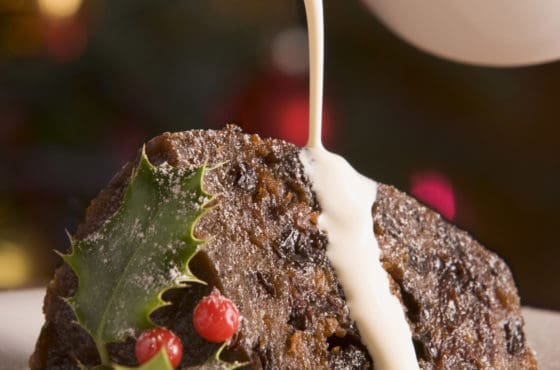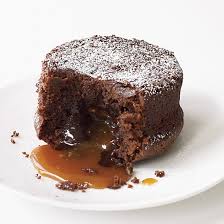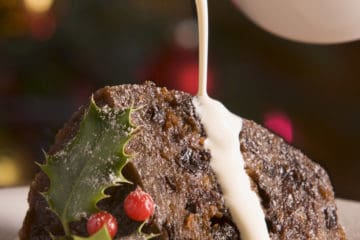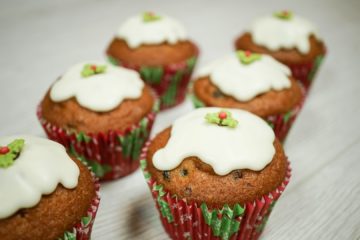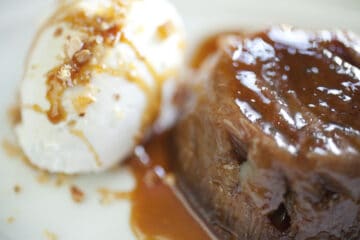1. Soak Group 3 overnight.
2. Place Group 1 in mixing bowl.
3. Blend together on low speed, until butter is fully dispersed.
4. Add Group 2 & mix on low speed until combined (approximately 1 min.).
5. Add Group 3 and continue to mix on low speed until fruit is mixed through.
6. Scale into pudding basins and lid.
7. Place into coffins half filled with water.
8. Cover puddings with 4−5 sheets of wet butcher’s paper.
9. Steam at 160°−170°C 3 hours for 450 gram puddings 4 hours for 900 gram puddings.
10. Take from oven; remove papers from top and puddings out of the water.
11. Remove lids until puddings have cooled.
12. Replace lids and package as desired.
Yield: Mouldiness is caused through damp conditions of storage or locally in the individual puddings setting up those conditions that flavour the growth of mould spores. If these conditions are not allowed to prevail there will be no trouble whatever with storage, and indeed it is safe to say that, however good a pudding may be, if it is carefully stored for a year it will be still better at the end of that period. Why Puddings Go Mouldy: 1. Making the mixture too soft and sloppy by the addition of too much liquid i.e. eggs, milk, old ale, lemon juice etc. 2. Not filling the basins to the top. 3. Not tying up tightly so that water gets into the pudding during cooking or correctly sealing lid. 4. Allowing the water to go off the boil. When this happens, the expanded puddings collapse a little, allowing water to get between the pudding and the inside of the basin. This water softens the mixture and sends the puddings mouldy after a few weeks’ storage. 5. Insufficient cooking. 6. Failing to untie the knots in the pudding cloths immediately after cooking or removing lids. 7. Failing to get the puddings out of the boiler as soon as possible after they have been boiled. They must never be left in the water, but must be removed at once. 8. Leaving the puddings in a steamy atmosphere after they are cooked. As soon as they are untied or lids removed they should be carried to a dry storeroom to dry off in moderate warmth. 9. After being cleaned and re-wrapped or re-lidded for sale the puddings must be stored in a dry place, otherwise they go mouldy.


